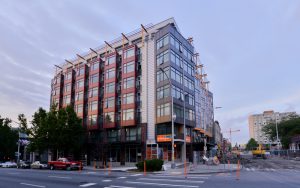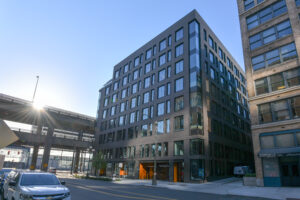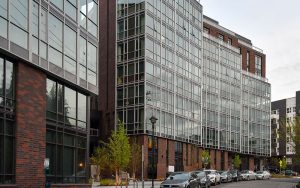Magnolia Mixed-Use
As a participant in Seattle’s Living Building Pilot (LBP) program, this project will conserve natural resources and will be one the healthiest buildings in our region. Located in Seattle’s Magnolia Village, it will be the first Living Buildings in the United States to have a grocery store with multifamily above, with six floors of condominium residences over the ground-level store.
The City of Seattle’s LBP program is comprised of stringent energy and water requirements on top of Living Building Challenge (LBC) petal certification.
Energy: The City requires the building to be 25 percent more energy efficient than the Seattle Energy Code (SEC). Strategies to achieve this efficiency include solar panels on the roof and energy savings from recycling heat generated from the grocery store refrigeration system. This recycled heat will be used to heat as well as cool the condominium homes, grocery store, and to provide hot water.
Water: The City requires using non-potable water for all toilet flushing, irrigation, and non-human uses. To achieve this, the building will take advantage of groundwater found 8-10 feet below grade at this valley site. Rushing is developing the design of a combined greywater and ground water reuse system to serve all these non-potable water demands. Based on Rushing’s water harvesting study, an estimated 1.1 million gallons of potable water will be saved every year. That savings represents more than 33 percent of the anticipated annual potable water demand for the building if it were not a Living Building.
LBP Petal Certification: The project is pursuing three LBC petals: Materials, Health & Happiness, and Beauty. The Materials petal requires all building and finish materials to be non-toxic. This involves deep review of every ingredient in all building products to ensure the “red list” chemicals (materials that cause negative health impacts) are not used.
Health & Happiness and Beauty petals are focused on biophilic design. The team engaged in biophilic design workshops to identify key design measures that will benefit human health and connect people to nature.
LOCATION
- Seattle, Washington










